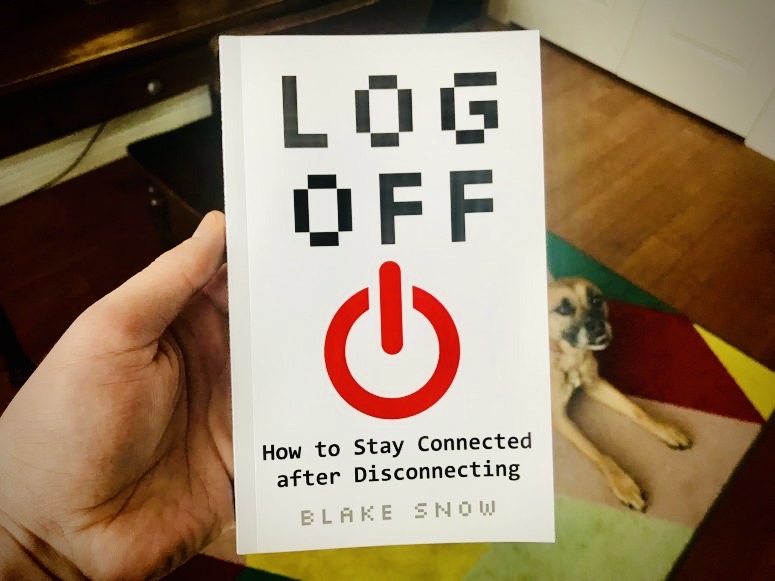5 things I learned after publishing Log Off, the best-selling book that changed my life

It’s been half a decade since I published my first book, Log Off: How to Stay Connected after Disconnecting. It sounds melodramatic, but that little book changed my life. I owe so much to the stories and research contained inside, as well as the rippling effect it created after publication.
Five years later, here are five things I learned after publishing the book:
- Logging off is a constant battle. It’s like eating your vegetables or daily exercise. But unlike those life-giving habits, people’s screen habits are constantly changing. Last year, for example, I had to delete YouTube from my phone after it became too much of a distraction. At first I managed it well. But last January I realized just how much time I was wasting on it, which was preventing me from consuming and creating more meaningful things. So I cut it. I’m certain I’ll have to cut other things from my screen in the years to come. You will too.
- Logging off gets easier with time. The more you practice logging off, the easier it gets (and more time you can reclaim). I was reminded of this recently after meeting a talented executive that admitted to maintaining several bad phone habits. Obviously everyone is at a different point on the Log Off spectrum, but it’s refreshing to see how far removed you can find yourself from the digital rat race the longer you practice good habits. I find that encouraging and self-fulfilling.
- Small habits lead to big results. It’s amazing what you can accomplish after incorporating Log Off into your life. Last year a reader from Illinois emailed saying she had reclaimed nearly 20 hours a week after abandoning social media and other online discretions. She was both thrilled and gracious, which I love hearing. In my own life, I published my second book, released two radio-quality albums, and traveled the world after writing Log Off, all while growing my career as a bodacious writer-for-hire. I know it sounds over the top, if not magic. But big things happen when you regain your focus and “stop setting your alarm clock every five minutes for an entire night, just to ‘check in’ to make sure the house didn’t burn down” as I wrote on page nine.
- One little book isn’t enough. I had this dream that Log Off would stay a best-seller and change the world in a big way. That didn’t happen. (But it did change the world in little ways, liked the hundreds, if not thousands, of readers’ lives that it touched.). Nevertheless, I realized after publishing the book that I have to keep beating this drum and branching out if I want to spread the message more. Which is why last year I started visiting local schools to give away free “Live Heads Up” t-shirts and talk to them about logging off so they can do cool things with their time. As part of that, I started a non-profit and hope to promote the message further with more community events this year.
- It takes a village. I can’t do this alone. Thankfully there are lots of other people fighting (and funding) this fight who are willing to help. While I believe I started an undercurrent, if not movement, I need lots of help if I want to grow it. Will you join me this year? If so, will you consider sharing the book with a friend, donating to the non-profit, or hosting a school or community event this year where I can come talk to your audience about the benefits of logging off?
Thanks for considering. Happy new year!
